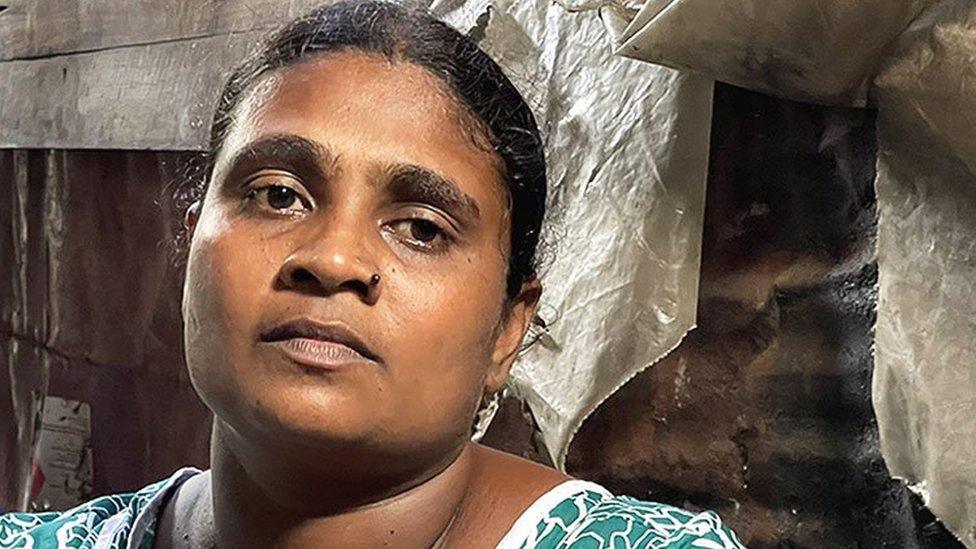Sri Lanka: Reshuffle begins after cabinet quits over protests
- Published
WATCH: Police in Sri Lanka fire tear gas and water cannon at protesters in Kandy
Sri Lankan President Gotabaya Rajapaksa is trying to stabilise his government after mass protests prompted most of the cabinet to resign.
Only the president's brother, the prime minister, Mahinda, stayed on as the government grapples with a major economic crisis.
Earlier, Mr Rajapaksa invited opposition parties to join the cabinet.
But spontaneous public protests have continued against shortages of essential goods and rolling power cuts.
On Sunday, many defied a curfew to take to the streets in several cities. Many of the protesters have been calling for the resignation of the president.
The curfew, along with a ban on social media sites including Facebook, WhatsApp and Twitter, was meant to halt a planned day of protests, after a demonstration outside the president's house on Thursday night turned violent.
Two opposition parties - the Samagi Jana Balavegaya (SJB), with 54 seats, and the Janatha Vinukthi Peramuna (JVP), with three - have also rejected the president's invitation to form a national unity government and told him to resign instead.
Sri Lanka is struggling to pay for imports of fuel and other goods because of a shortage of foreign exchange, which has exacerbated its worst economic crisis since independence from the UK in 1948.
Sri Lanka needs foreign currency to pay for imports of fuel. With power cuts lasting half a day or more and shortages of food, medicines and fuel, public anger has reached a new high.
The 26 cabinet ministers who resigned included the prime minister's own son, Namal Rajapaksa, who tweeted that he hoped it would help the president and PM's "decision to establish stability for the people and the government".
Mr Sabry, who was justice minister in the previous government, now becomes finance minister, replacing another of the president's brothers, Basil Rajapaksa, who was due to visit Washington this month for talks with the International Monetary Fund (IMF) on a loan programme.
Previous ministers of foreign affairs, education and highways were reappointed to their old positions.
Many protesters who allege that the president and his family are to blame for the situation in the country are angry at the fact that he will remain in power.
One Twitter user called it a "sick joke".
Allow X content?
This article contains content provided by X. We ask for your permission before anything is loaded, as they may be using cookies and other technologies. You may want to read X’s cookie policy, external and privacy policy, external before accepting. To view this content choose ‘accept and continue’.
Another called it a "play from the dictator's playbook".
"We want all of you gone - the Rajapaksas, the cabinet,their political henchman, the corrupt cronies, their media guys. All of them," another social media user added.
Allow X content?
This article contains content provided by X. We ask for your permission before anything is loaded, as they may be using cookies and other technologies. You may want to read X’s cookie policy, external and privacy policy, external before accepting. To view this content choose ‘accept and continue’.
The demonstrations mark a massive turnaround in popularity for Mr Rajapaksa, who swept into power with a majority win in 2019, promising stability and a "strong hand" to rule the country.
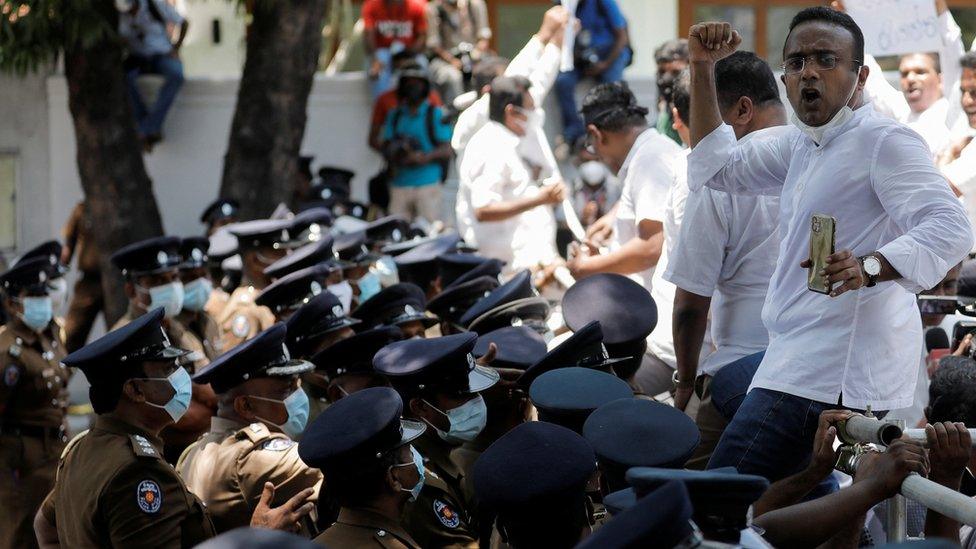
Protesters confronted security forces in Colombo on Sunday


I met opposition leader Sajith Premadasa at another impromptu protest on Sunday, where he along with other members of his party were stopped at police barricades as they tried to enter the city's Independence square.
"The supreme law of the land protects the right of the people to share their opinions, to demonstrate and to engage in peaceful democratic activities, so that right cannot be violated," he said, adding that the curfew and social media ban were dictatorial, autocratic and draconian steps.
I also met several people who had defied the curfew to come out and protest.
Suchitra was one of dozens gathered at a protest outside an Asian restaurant by what's usually a busy road.
As he cradled his 15 month-old baby boy, who shares his name, Suchitra told me about the daily problems he faced with power cuts.
"Without electricity our fans don't even work. In this heat it's impossible for the baby, or us, to sleep."
"I came out today because my rights have been taken away, and I'm very angry," said Anjalee Wandurgala, one of a few hundred students who gathered in a part of Colombo.
"Why have they put this curfew? Is it to protect us?" she asked. "It doesn't make sense at all".
Freelance advertising copywriter Sathsara says it is the first time he has ever protested.
"I'm freelance, but I can't earn money as there's no gas, no electricity. I'm totally broke," he says.
He's one of many young Sri Lankans struggling to see a way forward through this crisis.
"We are at the prime of our lives, how are we going to achieve our dreams with all this happening?"
Related topics
- Published4 April 2022
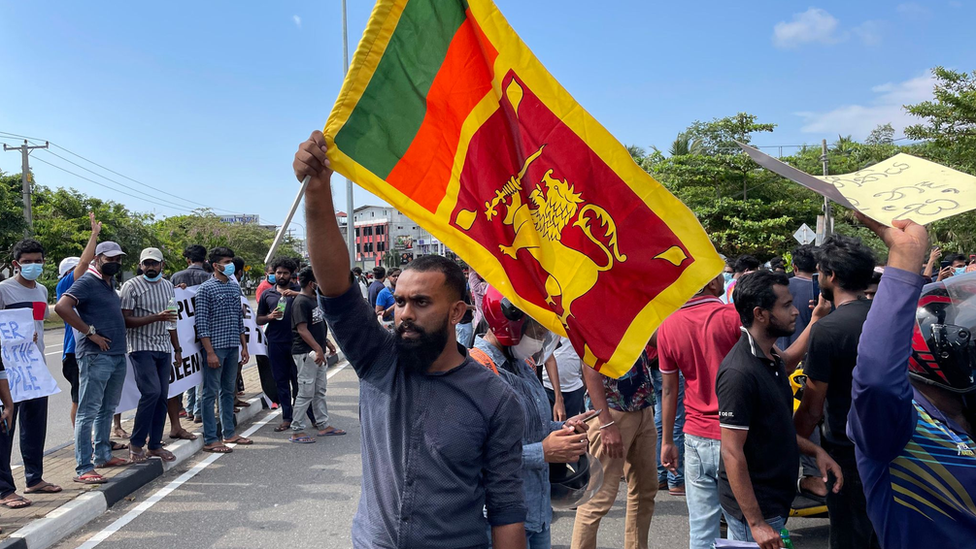
- Published3 April 2022
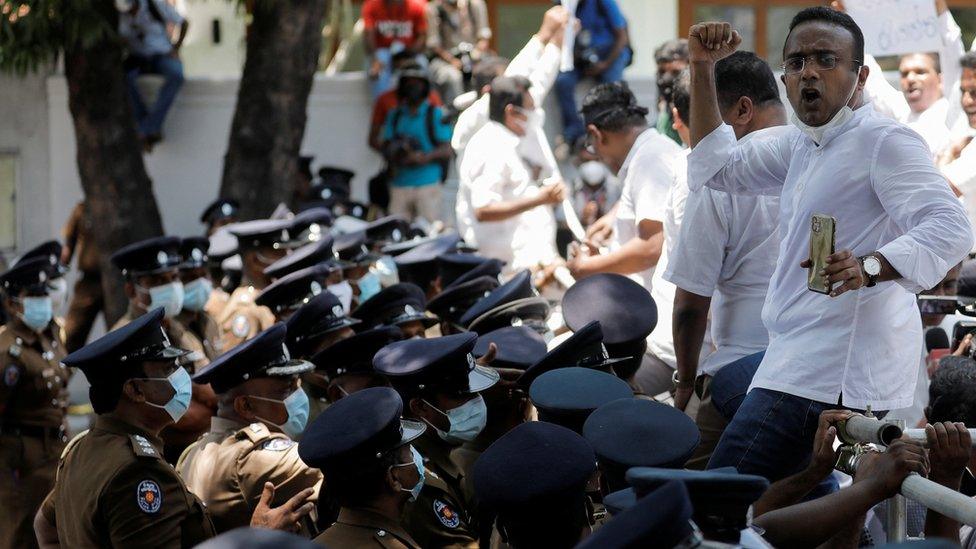
- Published5 April 2022
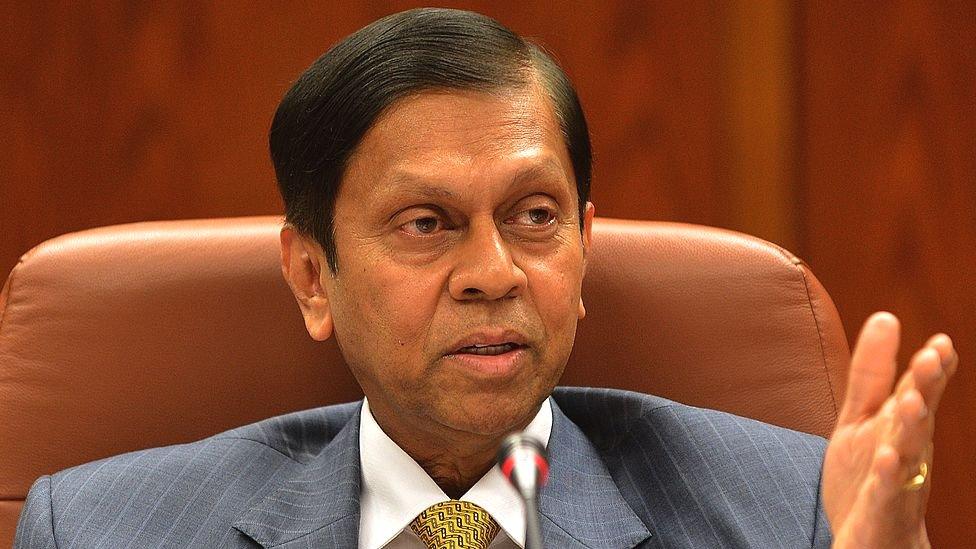
- Published1 April 2022
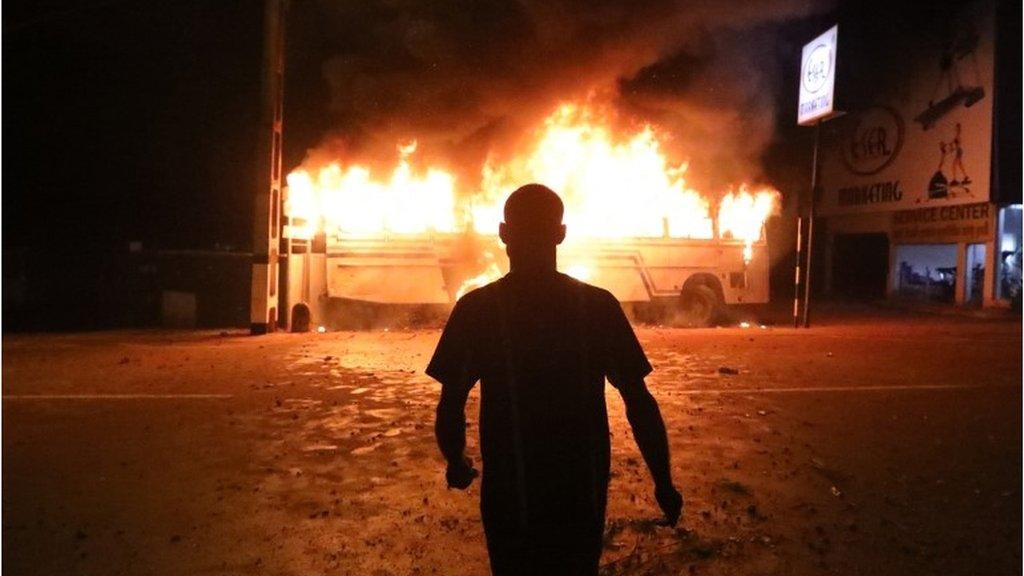
- Published12 January 2022
